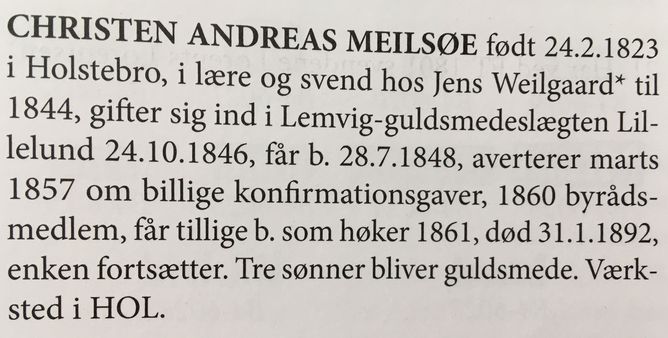Three stamps;
the makers mark "H.A.M.",
fineness "11LØDIGT" (68.7% silver),
and the makers mark "H.A.M." again.
There is also a monogram "MH" and the date "16/5 - 91".
Who is the maker?
"11LØDIGT" might be norwegian or danish.
Any information would be appreciated.
idarf




